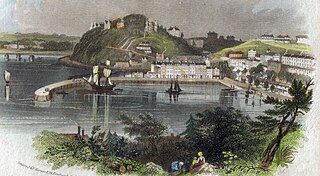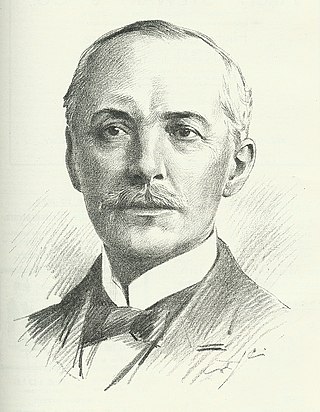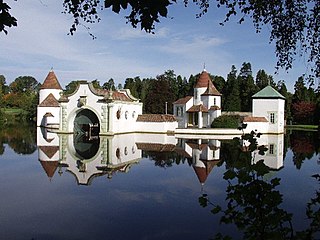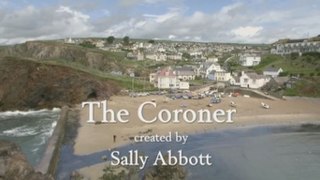
Torquay is a seaside town in Devon, England, part of the unitary authority area of Torbay. It lies 18 miles (29 km) south of the county town of Exeter and 28 miles (45 km) east-north-east of Plymouth, on the north of Tor Bay, adjoining the neighbouring town of Paignton on the west of the bay and across from the fishing port of Brixham.

Torbay is a unitary authority with a borough status in the ceremonial county of Devon, England. It is governed by Torbay Council, based in the town of Torquay, and also includes the towns of Paignton and Brixham. The borough consists of 24.27 sq mi (62.9 km2) of land around the east-facing Tor Bay, part of Lyme Bay on the English Channel. A popular tourist destination, Torbay's sandy beaches, mild climate and recreational and leisure attractions have given rise to its nickname of the English Riviera. The neighbouring districts are South Hams and Teignbridge.

Paignton is a seaside town on the coast of Tor Bay in Devon, England. Together with Torquay and Brixham it forms the borough of Torbay which was created in 1968. The Torbay area is a holiday destination known as the English Riviera. Paignton has origins as a Celtic settlement and was first mentioned in 1086. It grew as a small fishing village and a new harbour was built in 1847. A railway line was opened to passengers in 1859 creating links to Torquay and London. As its population increased, it merged with the villages of Goodrington and Preston. Paignton is around 25 miles (40 km) north east of Plymouth and 20 miles (32 km) south of Exeter.

Oldway Mansion is a large house and gardens in Paignton, Devon, England. It was built as a private residence for Isaac Singer (1811–1875), and rebuilt by his son Paris Singer, in the style of the Palace of Versailles.

Torbay is a constituency in Devon represented in the House of Commons of the UK Parliament since 2024 by Steve Darling, a Liberal Democrat. He defeated Kevin Foster of the Conservative Party, who had held the seat since 2015.

Francis Matcham was an English architect who specialised in the design of theatres and music halls. He worked extensively in London, predominantly under Moss Empires for whom he designed the Hippodrome in 1900, Hackney Empire (1901), Shepherd's Bush Empire (1903), Coliseum (1904), and Palladium (1910). His last major commission before retirement was the Victoria Palace Theatre in 1911 for the variety magnate Alfred Butt. During his 40-year career, Matcham was responsible for the design and construction of over 90 theatres and the redesign and refurbishment of a further 80 throughout the United Kingdom.

The History of Torquay, a town in Torbay, on the south coast of the county of Devon, England, starts some 450,000 years ago with early human artefacts found in Kents Cavern. There is little evidence of any permanent occupation at Torquay until the eleventh century records in the Domesday Book, though it is known that visits were made by Roman soldiers and there was a small Saxon settlement called 'Torre'. In 1196 Torre Abbey was founded here, which by the time of its dissolution in 1539, had become the richest Premonstratensian Monastery in England. The buildings were bought by Sir George Cary in 1662. The Cary family and the Briwere family between them owned much of the land now occupied by Torquay. By the 19th century, most of the land was owned by three families: the Carys, the Palks, and the Mallocks.

Brunel Manor, previously known as Watcombe Park, is a mansion on the outskirts of the seaside resort of Torquay, Devon, England.

Sir John James Burnet was a Scottish Edwardian architect who was noted for a number of prominent buildings in Glasgow and London. He was the son of the architect John Burnet, and later went into partnership with his father, joining an architectural firm which would become an influential force in British Modern architecture in the 20th century.

Paignton Zoo is a zoo in Paignton, Devon, England. The zoo was started as a private collection by avid animal collector and breeder, Herbert Whitley, in the grounds of his home Primley House. It was opened to the public on a number of occasions, originally as Primley Zoological Gardens, and closed twice due to disputes with the tax authorities. The commercialisation of the zoo came when animals and attractions were relocated from Chessington Zoo during World War II, and the site was named as Devon's Zoo and Circus

Preston is a suburb located in the northern part of Paignton in Devon. Preston is a popular destination for family holidays and has two main beaches; Hollicombe, a red sandy beach with cliffs and rock pools, and Preston Sands with rock pools, beach huts and facilities. At low tide it is possible to walk between Preston Sands and the adjoining beaches at Paignton. The ward population at the 2011 census was 10,924.
Washington Merritt Grant Singer (1866–1934) was an American-born British heir, philanthropist and prominent racehorse owner.

Paignton Pier is a pleasure pier in the large English seaside resort of Paignton, Devon. It was financed by Arthur Hyde Dendy, a local Paignton barrister and designed by George Soudon Bridgman.

The Royal Exchange Square is a public square in Glasgow, Scotland. The square lies between Buchanan Street and Queen Street, opening out Queen Street and Ingram Street to the south of George Square. It is also easily accessible from Buchanan Street on the west side of the square, through two prominent archways at Royal Bank Place. The square is a landmark due to its distinguished architecture which attracts many visitors. It is one of six squares in the city centre.

Craigtoun Country Park is a country park located approximately 2 miles to the south-west of St Andrews in the county of Fife, Scotland. The site is currently owned by Fife Council, with park amenities being operated as of 2012 by the charitable organisation Friends of Craigtoun Park.

Torbay Council is the local authority for Torbay, a local government district in the ceremonial county of Devon, England. Since 1998 the council has been a unitary authority, being a district council which also performs the functions of a county council; it is independent from Devon County Council.

The Coroner is a BBC Birmingham drama series starring Claire Goose as Jane Kennedy, a coroner based in a fictional South Devon coastal town. Matt Bardock stars as Detective Sergeant Davey Higgins.

Paris Eugene Singer was an early resident of Palm Beach, Florida. He was 22nd of the 24 children of inventor and industrialist Isaac Singer of Singer Sewing Machine Company fame, from whom he inherited money; he has been described as a "man of luxury".

The George Cinema is a former Art Deco cinema on Bath Street in Portobello, Edinburgh. The building opened in 1939 as the County Cinema. For many years, a bingo hall, it is a Category C listed building.

The Old Town Hall is a former municipal building in New Street in Paignton, a town in Devon, in England. It served as the offices of Paignton Urban District Council until 1946, but was later converted for residential use.


















